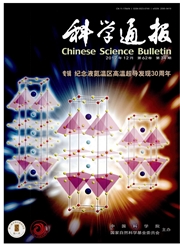

 中文摘要:
中文摘要:
在这研究,我们调查了看很多幅讨厌的图象导致的否定感情的唤起怎么在口水改变了能分泌的免疫球蛋白 A (SIgA ) 的集中。尽管我们的结果在参加者的 SIgA 集中之中发现了差异(即而其它增加了,某参加者的 SIgA 在看讨厌的图画以后减少了),当察觉讨厌的图画时,进一步的分析为情感规定在 SIgA 集中,他们的一般处理式样和他们的实际策略在参加者的变化之中揭示了关联,并且事件相关的潜力( ERP )与看讨厌的图画联系了。其 SIgA 在看讨厌的图画(“ Increasers ”) 以后增加了的参加者比其 SIgA 减少了的那些(“ Decreasers ”) 处理式样问询表(TCSQ ) 的特点地有更高的积极处理分数。相对“ Decreasers ”,另外,“ Increasers ”趋于使用更多的情感规定策略,特别地与极其否定的图画。他们的晚积极的潜力(LPP ) 的振幅为极其否定的图画对最不否定的展出了一个反向的分离模式并且与刺激的意思的认知评估有关。简言之,这研究揭示了否定感情的状态由影响免疫系统和相关 ERP 变化的心理机制。
 英文摘要:
英文摘要:
In this study, we investigated how the negative emotional arousal induced by watching a number of unpleasant images altered the concentration of secretory immunoglobulin A (SlgA) in saliva. Although our results found discrepancies among participants' SIgA concentration (i.e. some participants' SlgA decreased after watching unpleasant pictures, whereas others increased), further analysis revealed correlations among participants' changes in SIgA concentration, their general coping styles and their actual strategies for emotion regulation when perceiving unpleasant pictures, and the event-related potentials (ERPs) associated with viewing unpleasant pictures. The participants whose SIgA increased after watching unpleasant pictures (the "Increasers") had higher positive coping scores in the Trait Coping Styles Questionnaire (TCSQ) than those whose SIgA decreased (the "Decreasers"). Also, relative to the "Decreasers", the "Increasers" tended to use more emotion regulation strategies, particularly with extremely negative pictures. The amplitude of their late positive potentials (LPPs) exhibited a reverse dissociation pattern for extremely negative pictures versus least negative ones and was related to the cognitive evaluation of the stimuli's meaning. In sum, this research revealed the psychological mechanisms by which negative emotional states influence the immune system and the related ERP changes.
 同期刊论文项目
同期刊论文项目
 同项目期刊论文
同项目期刊论文
 Sport expert's motor imagery: Functional imaging of professional motor skills and simple motor skill
Sport expert's motor imagery: Functional imaging of professional motor skills and simple motor skill Hippocampus's role in forming "task-related" associations: Flashing to the things you are looking fo
Hippocampus's role in forming "task-related" associations: Flashing to the things you are looking fo 期刊信息
期刊信息
